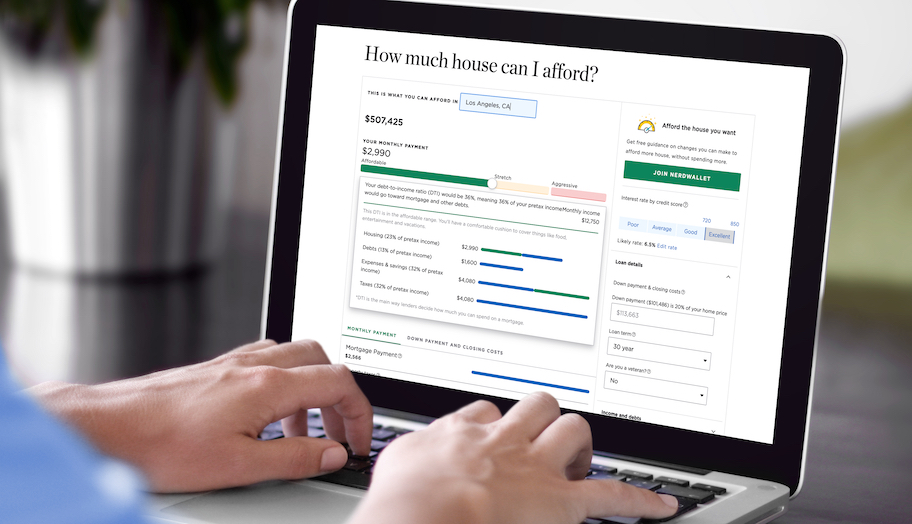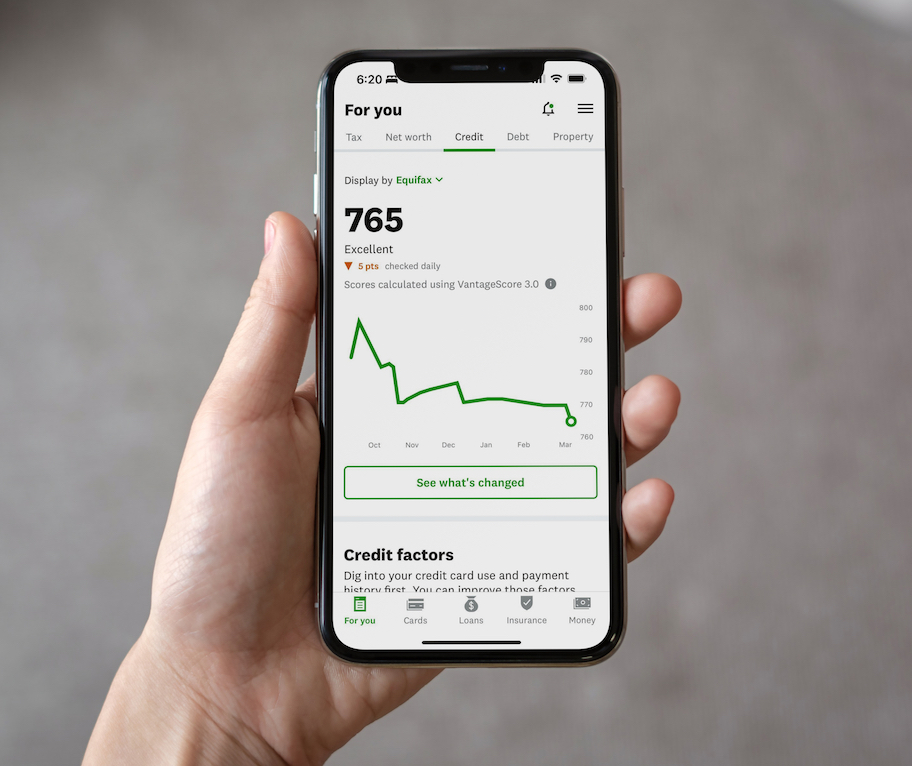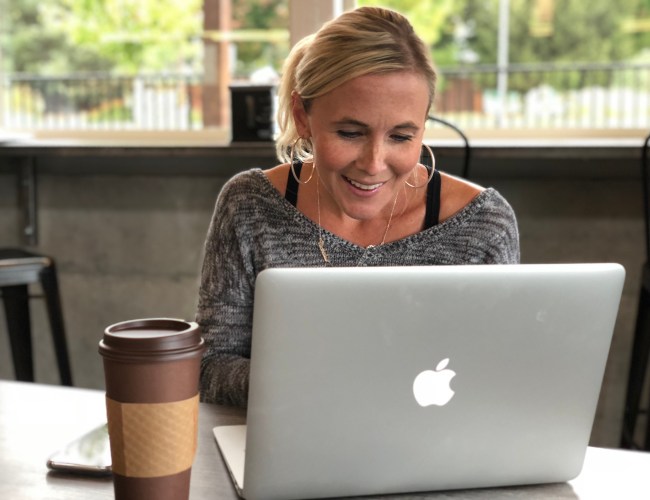Looking to Buy a House in 2024? Check Out Our Money-Saving Guide!
Buying a house? Read our top tips for a smooth home-buying experience.

We want you to find the perfect home. 🏡
Our first-hand experience buying a house will help you have a smooth experience. Avoid our mistakes and learn the key to a successful close.
Buying a house is a significant financial and legal transaction that involves several steps.
Here are the general steps to get started on your house-hunting journey:
Step 1: Determine your budget.
Buying a house is a significant financial commitment you’ll be making over the next 15 to 30 years, so understanding your financial capacity is crucial when considering a new mortgage.
Remember, keeping your expenses below your income ensures comfort and enables you to be prepared when unexpected costs arise. You’ll also be able to enjoy daily luxuries that otherwise could be out of reach if your budget is stretched to the limit.
Check out Nerd Wallet’s Home affordability calculator to help determine how much house you can afford!
Step 2: Know your credit score.
You may want to improve your credit score before you start house hunting. A better score can positively influence the mortgage amount you qualify for and assist lenders in determining your interest rates and loan terms. Do everything you can to maximize your score before your home purchase.
The Credit Karma free credit score tool is free and easy to use. It allows you to evaluate your current credit score and discover simple methods to enhance it before talking with a lender.
Step 3: Get Pre-approved for a Mortgage.

Contact various lenders, including banks, credit unions, and mortgage brokers, to obtain pre-approval for a mortgage. Once you have a pre-approved amount, you can officially begin your house-hunting journey and be prepared to seize opportunities as they arise in the market. This will also help you narrow your search to properties that align with your budget.
Lenders will be eager to get your business, so make sure you’re also shopping around for the best rate possible on your mortgage.
Here’s a helpful savings tip from our Hip sidekick, Shane:
Know where your money is going and how it’s going to be allocated for things like your escrow and your insurance. Play with the numbers to see if you can submit a larger payment upfront to lower your overall monthly cost. Check to see if you’re eligible for a 1st-time homeowner’s exemption, or a 2nd loan if needed so you don’t eat into your savings right away.
Step 4: Start house hunting.

Search for properties that meet your criteria (location, size, amenities, etc.). You can use real estate websites, work with a real estate agent, or attend open houses to find potential homes.
I recommend finding a trustworthy real estate agent who will do the hunting for you. They’ll also have the ability to get intel on houses coming soon. Get recommendations from friends and family and research local realtors who are knowledgeable about the area you’re looking to buy in. Interview several agents until you find one that feels like the right fit for you. Remember, their guidance will significantly impact your ability to secure a home in this competitive housing market.
Hip Tip: Optimize your home search and keep an eye out for potential rental opportunities like a spacious garage with a loft, a separate basement entrance, or an in-laws suite. These opportunities could assist in generating additional income to offset your monthly mortgage payments.
Step 5: Ask the right questions when you find “the one”.

When buying a house, it’s crucial to ask various questions to ensure you make an informed decision. Asking the right questions can help you gather essential information about the property, its surroundings, and the buying process, allowing you to make a well-informed decision.
Here are some essential questions to ask when buying a house and before putting in an offer:
- About the Property:
- How old is the house, and when was it last renovated?
- Are there any known issues or repairs needed?
- What appliances and fixtures are included in the sale?
- What are the average utility costs for the property?
- Has the property ever experienced any major damages or disasters?
- About the Neighborhood:
- What are the nearby amenities like schools, parks, shopping centers, and healthcare facilities?
- What is the crime rate in the area?
- Are there any planned developments or infrastructure projects that could affect property value?
- What is the noise level like throughout the day?
- About the Sale Process:
- Why is the seller moving?
- How long has the property been on the market, and have there been any price reductions?
- Are there any competing offers, and what is the seller’s preferred timeline for closing?
- Have there been any recent appraisals or inspections done on the property?
- What are the terms of the sale, including any contingencies or special conditions?
- About Financing and Costs:
- What is the asking price, and is it negotiable?
- What are the property taxes for the area, and are there any pending assessments or liens?
- Who is covering the closing costs, and how much are they?
- Are there any homeowners association (HOA) fees or restrictions?
- About Future Plans:
- Are there any restrictions on remodeling or expanding the property?
- What are the long-term plans for the neighborhood or surrounding area?
- How has the property appreciated in value over the past few years?
Planning to look at a potential home? Here are things to look for during your showing:

When touring a house, paying attention to various aspects is essential to ensure it meets your needs and will be suitable for your living situation. Additionally, don’t hesitate to ask questions and seek clarification from the seller or real estate agent about any concerns or uncertainties you may have.
Here’s what to look for when touring a house:
- Assess the condition of the property. Check the exterior and interior while looking for signs of wear and tear, water damage, or structural issues.
- Evaluate the layout and flow of the rooms. This is an important factor in ensuring that the home meets your lifestyle. Consider the size of rooms and the arrangement of bedrooms, living areas, kitchens, and bathrooms.
- Check for basic structural integrity. Any visible signs of structural problems, such as cracks in the walls or foundation, uneven floors, or sagging ceilings, could lead to expensive problems down the road and should be inspected further by a professional.
- Check that all windows and doors function. Open and shut windows and doors to ensure proper operation and security features, and check for signs of drafts or leaks.
- Check that the appliances will meet your needs. Examine the condition of appliances and check for functionality.
- Check the condition of the bathrooms. To the best of your knowledge, check the plumbing, fixtures, and ventilation. Look for signs of leaks, mold, or mildew.
- Ask about the utilities. Know the age and condition of the HVAC system, water heater, electrical wiring, and plumbing, and be sure they’re in good working order.
- Assess all storage space. Closets, cabinets, the attic, and garage spaces will help you determine whether it’s sufficient for your belongings.
- Get to know the outdoor spaces. Including the yard, landscaping, patio, deck, or balcony. Consider privacy, maintenance requirements, and potential for outdoor activities.
- Take note of the neighborhood. Consider the noise level, traffic, and overall ambiance of the area, and see if it’s somewhere you could picture yourself. Schools, parks, shopping centers, and transportation options are also conveniences to consider.
Step 6: Make an offer.

With your preapproval in hand from the lender, you’ll be able to put in an offer once you find a house you love. Collaborate with your real estate agent to craft an offer the seller won’t want to pass up, considering factors such as the property’s market value, necessary repairs or enhancements, and your budget.
Keep in mind that the seller may counter your offer, and negotiations may go back and forth until both parties agree on a price and terms.
Below are some ways to make your offer stand out in this competitive market:
- Offer a competitive price. Make sure it’s aligned with the property’s market value. If you can afford it, consider going slightly above the asking price.
- Provide your pre-approval letter. This will demonstrate to the seller you are a serious and qualified buyer.
- Be flexible. If possible, adjust the closing date and other terms of the sale to accommodate the seller’s needs. This may include offering a rent-back option if the seller needs extra time to move out.
- Offer a higher earnest money deposit. This can show your commitment to the purchase, and a larger deposit can make your offer more attractive to the seller.
- Do an Escalation Clause. This will keep your offer on top in a bidding war until it reaches your maximum price. Note that realtors must provide proof they received an offer higher than yours, which protects your current offer as well.
- Write a heartfelt letter to the seller. Everyone says buying shouldn’t be emotional, but explaining why you love the home and are the perfect buyer could create an emotional connection with the seller and make your offer stand out.
- Waiving Contingencies. If you feel confident about the condition of the property, consider waiving certain contingencies, such as the appraisal or inspection. Always be cautious when waiving contingencies, and consult with your real estate agent or attorney before doing so.
- Be timely and quick. Submit your offer promptly and respond quickly to any counteroffers or negotiations. This shows the seller you are serious and motivated to complete the transaction.
- Work with an experienced real estate agent. They can provide guidance and negotiate on your behalf. A skilled agent can help you craft a strong offer and navigate the complexities of the buying process.
Step 7: Complete the purchase of your new home.

If you’re working with an experienced real estate agent, they will help guide you through the rest of your home-buying process.
Here are some things you can expect to do before you complete the purchase of your new home once you’re under contract:
- Do a professional home inspection. to identify any potential issues with the property. This can help you negotiate repairs with the seller or decide whether to proceed with the purchase.
- Finalize your mortgage. Provide all required documentation and information to secure your loan.
- Set a closing date. Once your mortgage is approved and all conditions are met, you’ll have an idea of when you can close and move in.
- Close on your home. Once your mortgage is approved, you’ll sign all necessary paperwork, pay closing costs, and receive the keys to your new home.
Bonus: Read some of the ways our Hip sidekicks have saved during their home buying or moving process.

Set a moving budget and stick to it.
You can save a lot of money by bribing your pick-up truck-owning friends with pizza or beer, but we ended up hiring movers. This can be very expensive, but it’s another category where we were able to negotiate a lower cost due to the slow housing market in our area. We got estimates from several moving companies, but ultimately we chose a company and told them how much money we wanted to spend. With our budget in mind, they were able to calculate how many movers to send, and how much time they could spend on our move. We ended up paying about 30% less than the price they originally quoted us!
Don’t move on a weekend if you can avoid it.
If using a moving company, ask about moving on a weekday vs. a weekend. We moved on a Thursday, and it helped to keep our costs down.
Use all the free packing supplies you can.
Our movers had boxes for us to use, but they started at almost $6 each, and they went up to $25 each for the dishpack/fragile boxes! The moving boxes sold by Home Depot were a lot more affordable but still an unnecessary expense. We picked up free boxes from our local grocery store, and they worked great. You can often find free moving boxes on Facebook Marketplace or in other local forums, too.
Avoid buying bubble paper for your fragile items.
I had been saving the bubble-lined envelopes from my Amazon shipments, so I had a lot of those to protect my dinner plates. My other fragile items got wrapped in dishtowels, washcloths, pillowcases, and any small linens I could find. I was a little nervous to pack things this way, but everything arrived intact!
For clothing, we use storage bags you can reuse to store linens in at the new house. You can throw pillows, bedding, and stuffed animals in heavy-duty garbage bags and reuse them later for your actual trash.
Take a closer look at your insurance coverage.
Talk to your insurance company and see about what levers you can pull to lower your overall bill. I took a closer look at the coverage for my house in Idaho, and lots of them didn’t even really apply so I reduced my yearly cost by quite a bit, but because I have a basement (and lots of snow some winters) I lowered my deductible for water damage.
Contemplating skipping a home inspection? Here are several reasons why our team strongly advises against bypassing this critical step:

It may seem like a no-brainer, but it’s worth the $500 – $600 it takes to get a good inspector. And I highly suggest tacking on the Radon inspection if it’s extra. It will save you a lot more upfront, not to mention may help prevent possible disease and illness if you find out you live in a highly radon-contaminated area (which I found out 6 months later).
You may never know what’s wrong with the home and it is a must-have. A professional inspector will look for things I would have never ever even thought of!
Skipping an inspection seemed to be common practice when we were house hunting. I even got an additional inspection for the basement, which I also recommend. I recently learned basements are not common everywhere. That’s wild to me! But it was on my must-have list while house hunting so I wanted to ensure it was safe for my family.
Be super picky and get an inspection. It’s such a big investment that you can’t afford to be like, well, I guess I could deal with that, only to then hate it after you buy it. When we were house shopping years ago, I fell in love with a fixer-upper farmhouse. We were convinced we could make it our own and I’m sure we could have but after the inspection, there were SO many issues we hadn’t noticed that it just didn’t make sense to buy. Now we joke that we’re so glad we didn’t buy that farmhouse because it would have taken a ton of money to fix. Had we not gotten the inspection we would have walked right into a money pit.









You left a crucial step. When making an offer you need to write in the offer contingent to a home inspection. It is worth paying an licensed, accredited home inspector to identify any hidden or potential problems with the home or property. We did and well worth the several hundreds we paid. The home inspector gave us a typed, thorough report identifying everything he did and found. Then once anything is identified you can use this report to negotiate your purchase price to fix things that th Red inspector identifies. In our case our inspector did mold tests ( very important to do) and radium tests which is a problem here in Utah naturally. It comes from the ground and if the levels in your home are too high it can cause serious health issues such as cancer. The levels in our home were to high and unsafe so we insisted the owner pay for and have a radium mitigation system installed which monitors levels and removes radium out of your home. It would have cost us thousands if not identified by our inspector but even worse cost us our health. So an inspection is not the time to cheap out. Plus once the inspector identifies a problem the homeowner must by law let all potential ppl of these items before they make an offer or the homeowner can fix the list prior to other showings.
Yes, I agree. Never buy a house without an inspection!! We have walked away twice for reasons that we would not deal with and the owner would not fix or negotiate on. Also if a house is sold as is and it is full of stuff they do not have to remove any of it. We recently did a drive by on a house that had pules of junk on the backyard and that was a hard pass since the as is would have required that we get rid of all of it.
Did you mean radon? Or radium?
Absolutely I did. Thank you for clarifying that. Obviously an old woman moment…. Lol. Radon so sorry for the confusion.
Also, if the area you are buying in is prone/susceptible to termites, ensure a termite inspection is done and any potential damage mitigated/fixed.
When finally moved into a new home, do not forget to save some cash by looking at cost savings programs for energy use. Simple things your utility provider may offer to sign up for (like having a programmable thermostat or having a device put on the outside of your home) and the provider will pay you for doing so. Each utility provider is different, so definitely look at that. We live in a community that the utility provider offers it, and we are pretty amazed at the number of people who do NOT take part in the program.
Also, look for FSBO (For Sale By Owner) — they oftentimes do not show up on the MLS. While oftentimes, FSBO’s tend to over-inflate the worth of their property, it is oftentimes worth a looksie. You just never know.
Credit Karma scores are not accurate but Experian and other credit agencies are.
Hi Margaux! I checked into this a bit more and spotted this info – “The credit scores and credit reports you see on Credit Karma come directly from TransUnion and Equifax, two of the three major consumer credit bureaus. They should accurately reflect your credit information as reported by those bureaus — but they may not match other reports and scores out there.” Hoping this may be helpful when considering the Credit Karma option. 🥰
that’s from the Credit Karma website. They use Vantage scores and most lenders use FICO. There can be huge variances between Vantage and FICO so best to obtain your FICO score to be safe.
I had to check my score discovered there was a 50 point difference between Credit Karma and what other agencies were reporting. That’s huge.